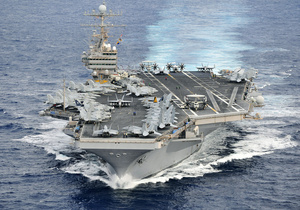|

2012 was a quiet year, a time of sorting out major changes previously set in motion. If there was a common theme, it is that while change can be breathtakingly swift in this globalized world, resolutions take longer than expected.
Few believed a year ago, myself definitely included, that Bashar al-Assad would see the beginning of 2013 still in office. Yet the killing in Syria continues with an end no more in sight than it was a year ago.
Similarly, after months and months of crises and innumerable all-night meetings, few thought it possible that the euro crisis could drag on for another year without some kind of resolution. Yet twelve months later, Greece is still in the eurozone; Spain, Portugal, Italy, and France under varying degrees of threat; Germany insisting that the euro will survive while resisting bold steps to make it so; and the euro’s future nearly as uncertain as Syria’s.
Russia began the year with an unexpected outbreak of civic protests surrounding its parliamentary elections that seemed to suggest major change in the offing. As the months passed, however, Mr. Putin was quietly reelected, and by the end of the year the surge for change in Russia had slipped underground.
The relative international inactivity in 2012 was partly due to an unusually large number of leadership changes, especially in East Asia, where every major country—Russia, China, North Korea, South Korea, Japan, and, on the periphery, the United States—has faced or will shortly face a change at the helm. Whether in democracies or authoritarian countries, the months before political transitions are times when the leadership keeps its focus on politics at home and generally tries to keep things quiet abroad. For a new head of state, the months afterward are devoted to bringing in a new team, consolidating power (which, for example, Kim Jong Un has spent the year quietly doing in North Korea), or developing new policy directions (as the incoming Chinese president, Xi Jinping, will likely spend most of 2013). Exceptions to this rule occur when governments use foreign conflicts to curry political favor at home or blow up what would otherwise be small irritations into major controversies out of fear of looking weak.
And so, 2013 begins with a simmering conflict between Japan and China (with the United States unhappily entangled because of its defense alliance with Japan) over a bunch of tiny, largely worthless, uninhabited islands in the East China Sea. With an untested leader in China and elections looming in Japan, neither side feels it can deviate from claims of absolute sovereignty. Both see short-term gain in fanning the flames of nationalism at home. One can only hope that a naval incident will be avoided until a quiet compromise is more possible and the issue can be put back into the large file of international problems labeled “Managed—Not Solved.”
|



